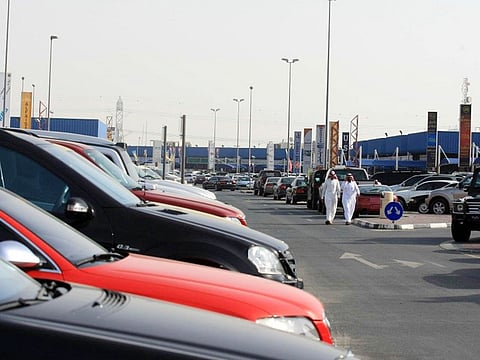UAE secondhand car prices see some slowing down after 3-year hot streak
Buyers get immediate delivery - and banks too are willing to finance pre-owned

Dubai: After three years of hotwired growth, retail prices of secondhand cars in the UAE are showing signs of stabilizing as dealers finally get their hands on enough models to sell.
A random check of some of the most popular secondhand car selling portals show prices have remained more or less unchanged since the start of the year. Sure, luxury vehicles continue to show further increases in asking prices, but that’s always been the nature of this particular category.
On popular SUVs, mid-sized and entry-level models, asking prices are stable, even with demand rising. Most important, banks are becoming more alert to possibilities in financing pre-owned cars to individuals, through incentives such as easier EMI payment options.
“Despite expectations of a decline in demand and prices due to rising interest rates and inflation by 2023, this trend has not manifested,” said Nicolas Bagoud, General Manager for GCC at Kavak, a seller of preowned vehicles.
A changed situation
All of this goes hand-in-hand with buyers able to drive home their vehicles almost immediately, rather than having to wait weeks, as was the case in 2020-22. “The difficulty in acquiring specific (preowned) models stemmed from the prolonged lead times for new car deliveries by certain manufacturers,” said Bagoud.
“This amplified the demand for pre-owned vehicles, and had a more pronounced impact on dealerships specializing in single brands. These dealerships that primarily dealt with new cars shifted focus to the pre-owned segment due to inadequate new car inventory.
“However, dealerships like ours operating with a multi-brand approach, experienced relatively less impact.”
Last year, it had even reached a point where prices for a secondhand unit 12-18 months older than the latest model was fetching prices just 15-25 per cent lower. Now, that was unprecedented. And you still had to wait on the delivery.
Now, choose the car you want online or at the secondhand dealer, and you should be good to go. Immediately or almost so.
Banking support
Dealers say that banks offering car financing on used vehicles has been another major boost to demand. This has allayed concerns that successive rate hikes will eat into demand for car buying, whether new or pre-owned. Bank offers show EMI payments kicks in two to three months after the deal is signed. Going forward, this will be critical to sustaining demand, with another round or two of rate hikes from the US Federal Reserve.
In October, the major UAE banks will announce their third-quarter financials, which would offer a peek into consumer spending and demand for loans, etc. For now, banking sources say that demand for auto finance is running ‘steady’.
Keep stocks up
The other thing that secondhand dealers have in their favour is access to a steady supply of models to sell. Which is a clear departure from the situation in 2021-22.
“Our data-backed model that allows us insight on what our buyers are searching for and what car models are fast-moving,” said Abhinav Gupta, CEO for Gulf Region at Cars24, which operates a massive logistics, service and retail facility in Jebel Ali Free Zone.
“Dubai has a high influx and outflow of residents all-year round, and so there is a consistent availability of cars in our fleet as we buy direct from consumers.” (For Cars24, the priciest deal it oversaw was on a Lexus Lx 570, which fetched Dh400,000. Gupta said that the average turnaround times on luxury cars – sourcing a model and then selling it – is between 60-100 days.)
Holding for longer?
Whether selling new or secondhand cars, dealers are closely tracking changes to buyer behaviours. At the start of the year, some in the industry had been worried about growth in retail sales sputtering over high cost of financing – but that’s not happened.
On whether car owners in the UAE would likely hold on for longer, Bagoud said: “In the case of lower-priced vehicles, owners tend to maintain ownership for extended periods, typically 3- to 4 years. On higher-priced vehicles, the ownership cycle tends to be shorter, averaging around 2 years.”
That, as any secondhand car dealer would say, is as good as it gets.
Sign up for the Daily Briefing
Get the latest news and updates straight to your inbox







